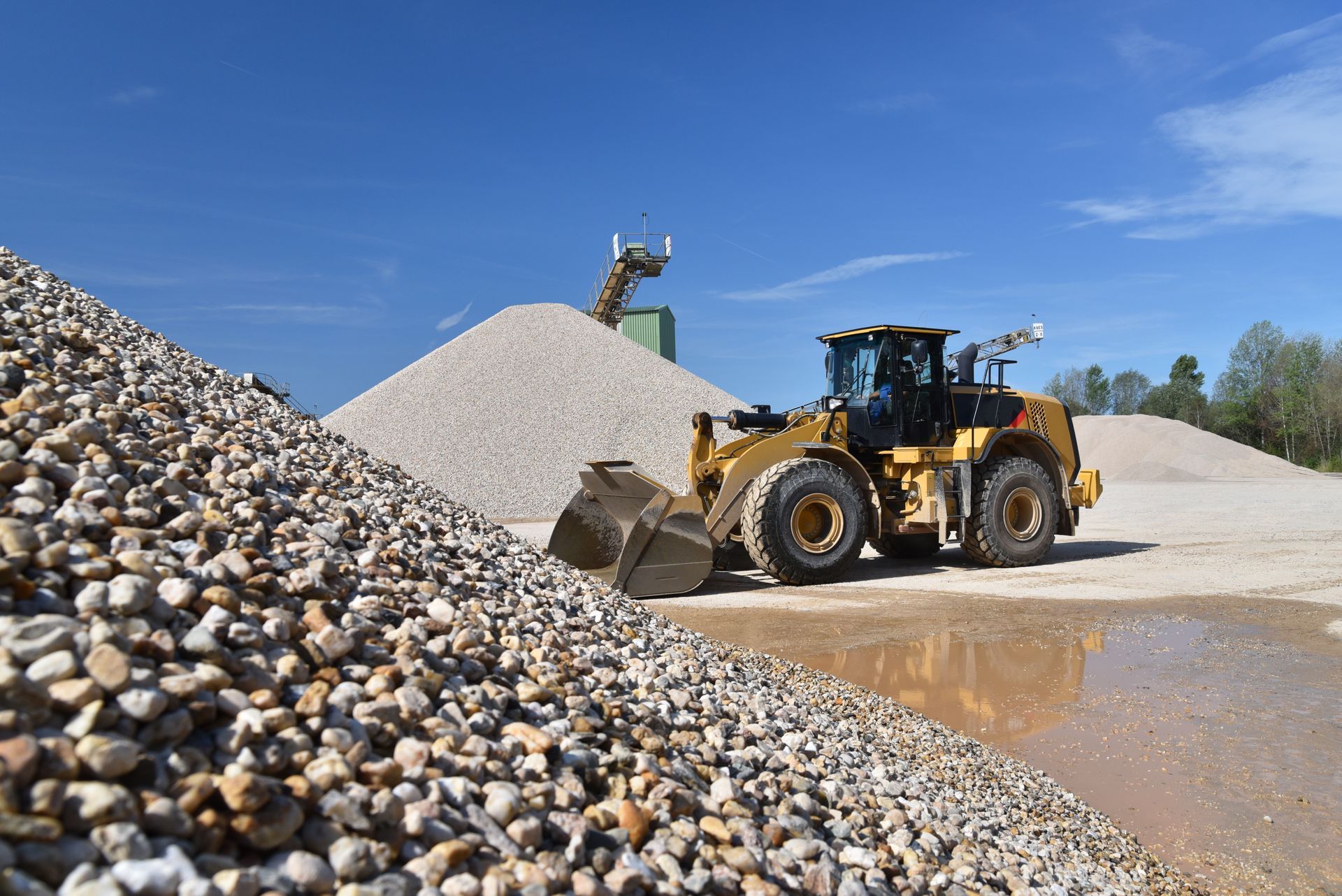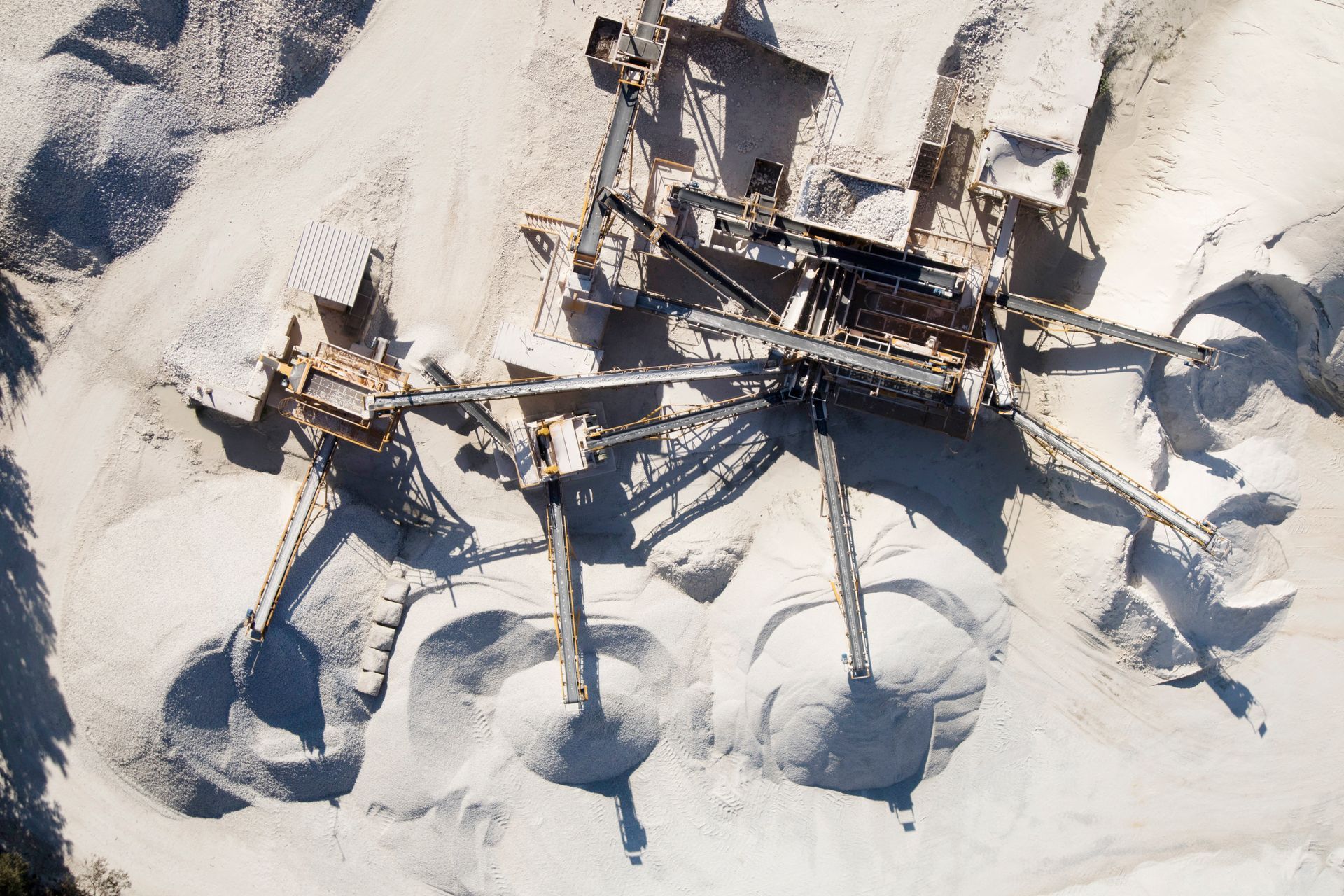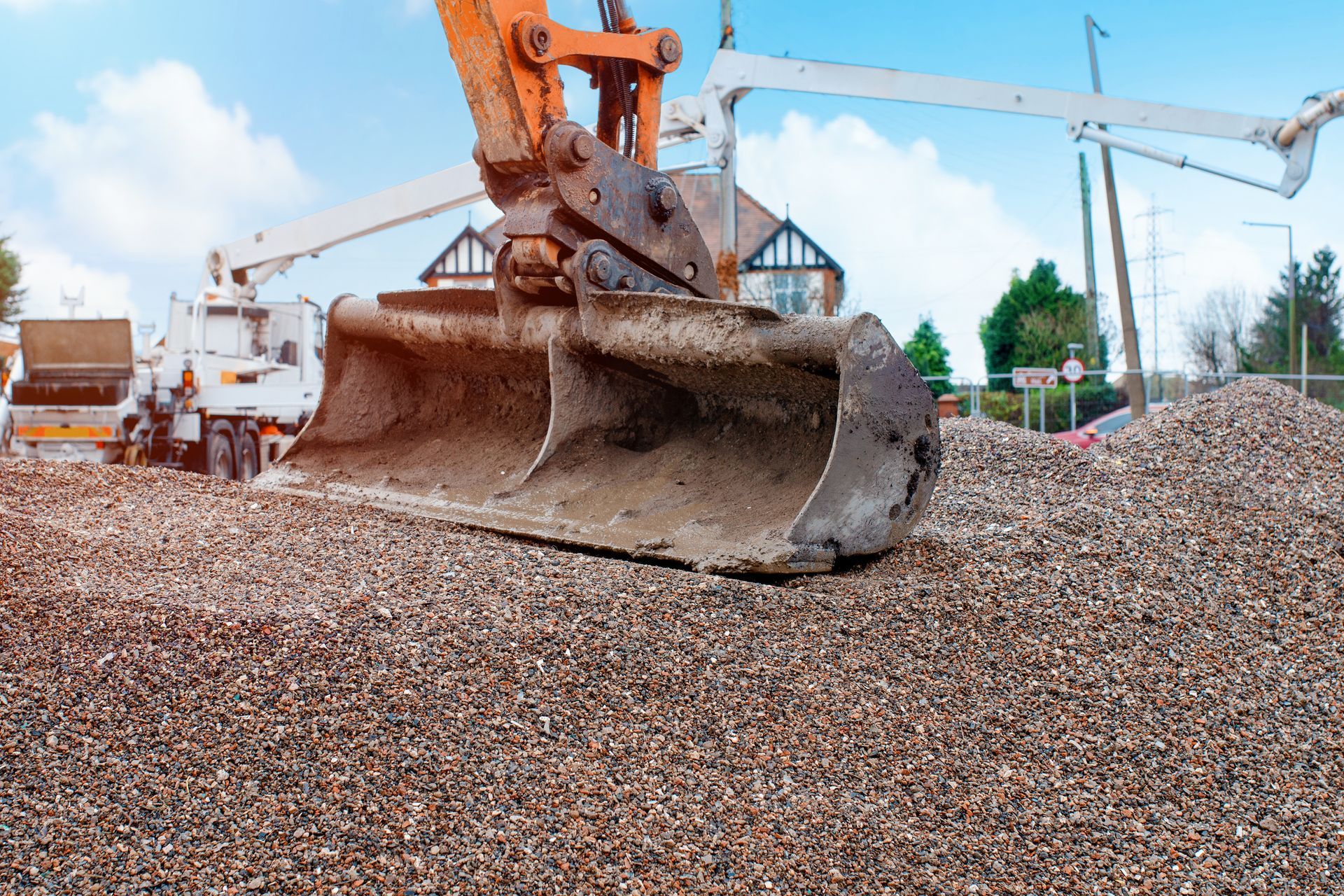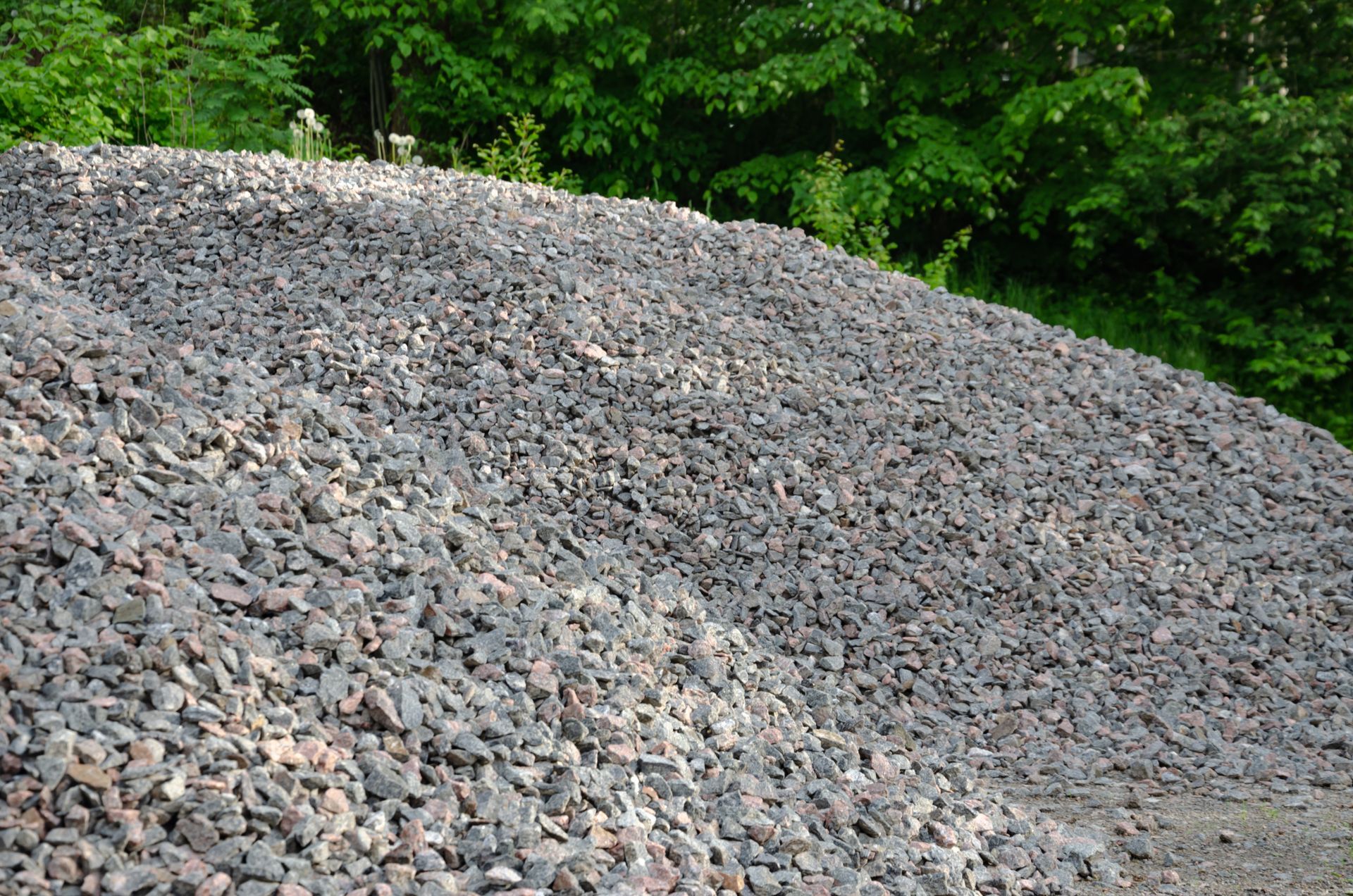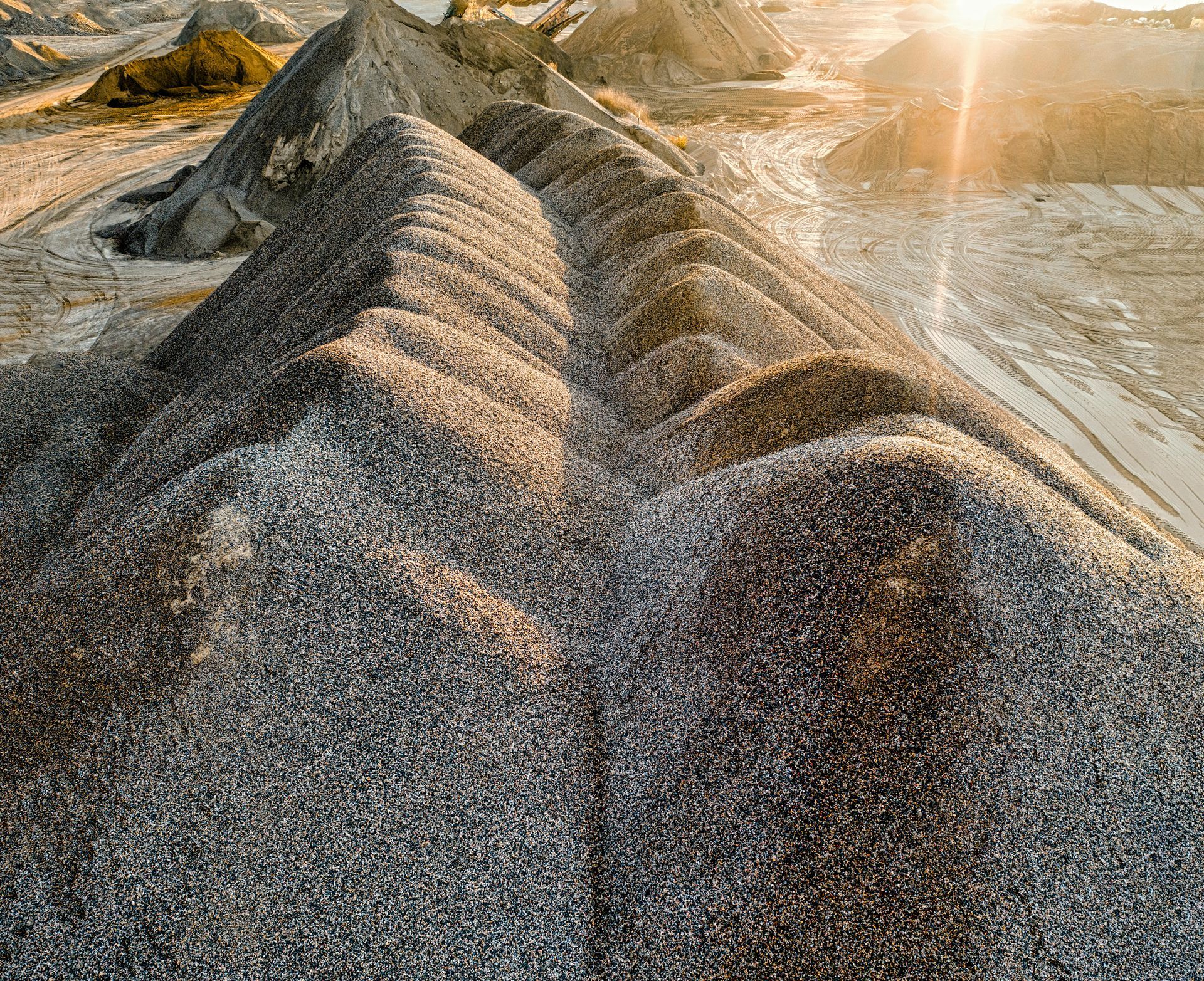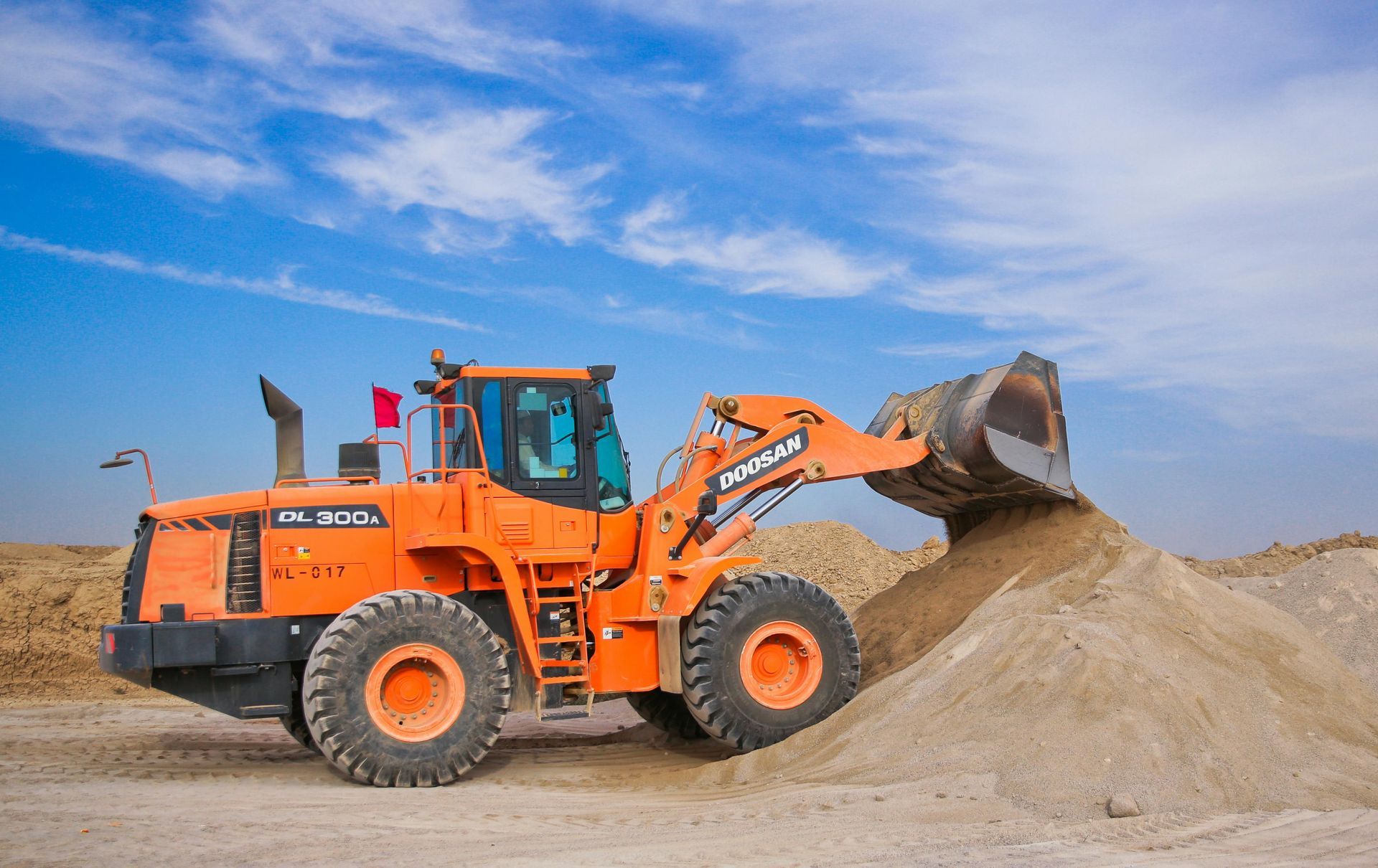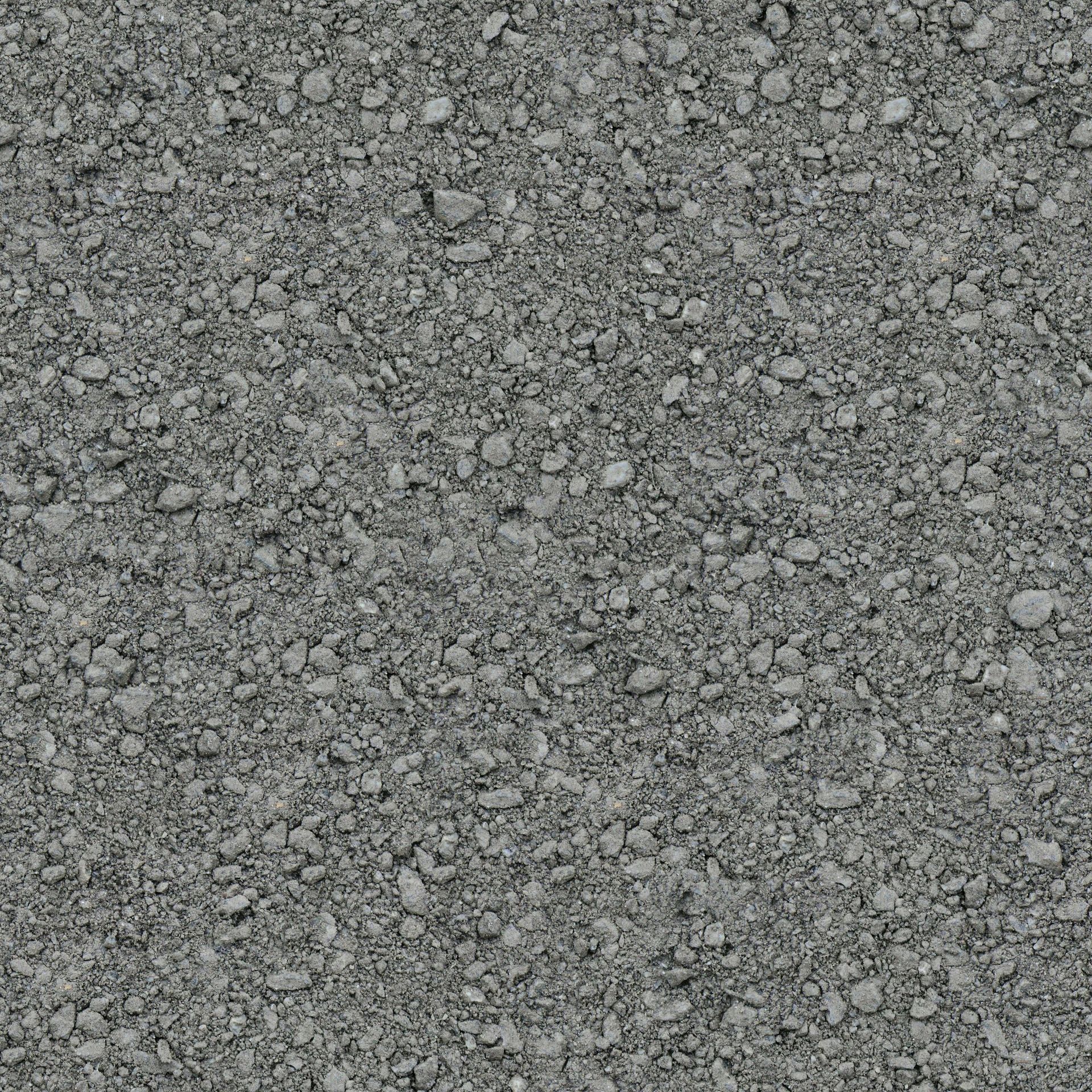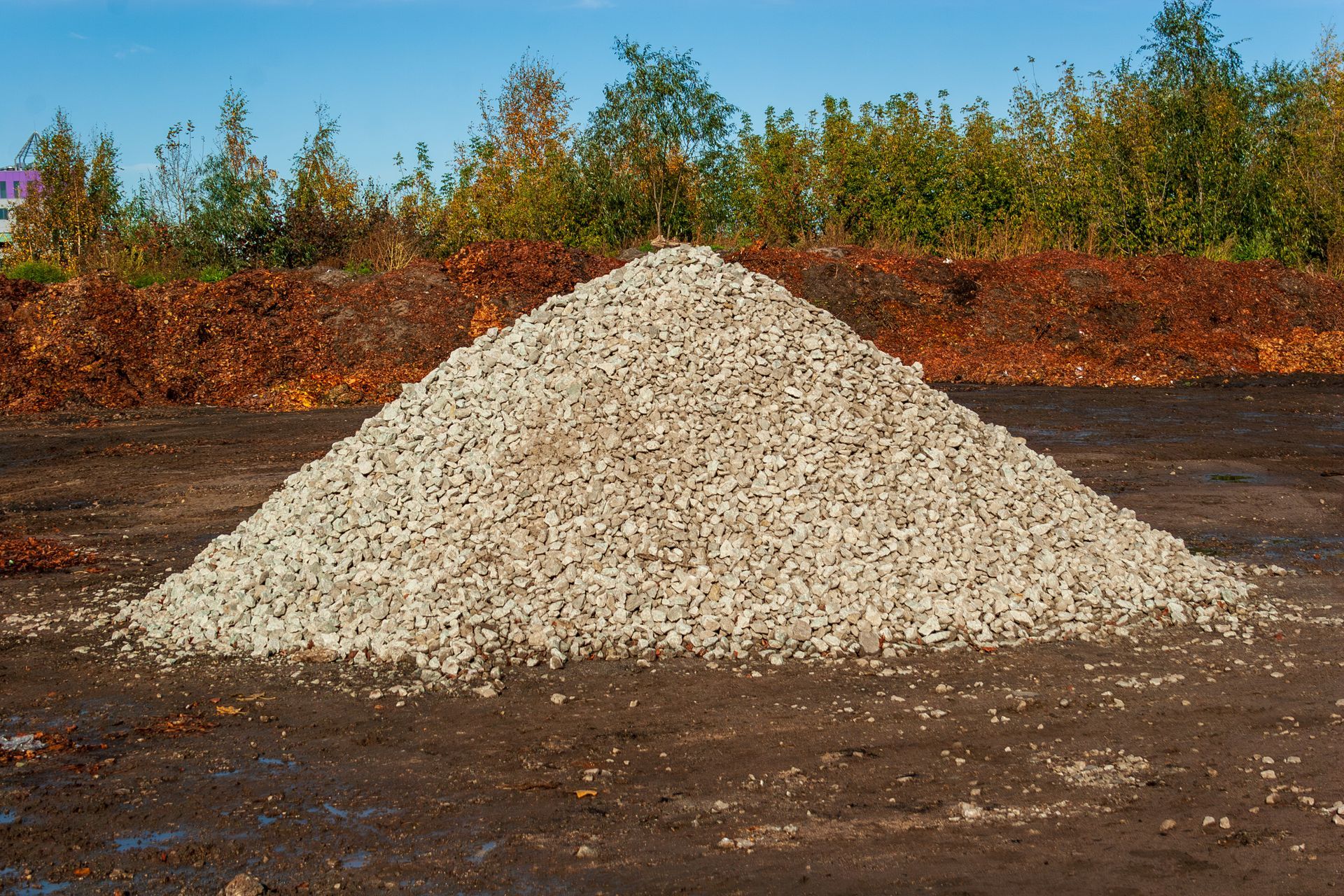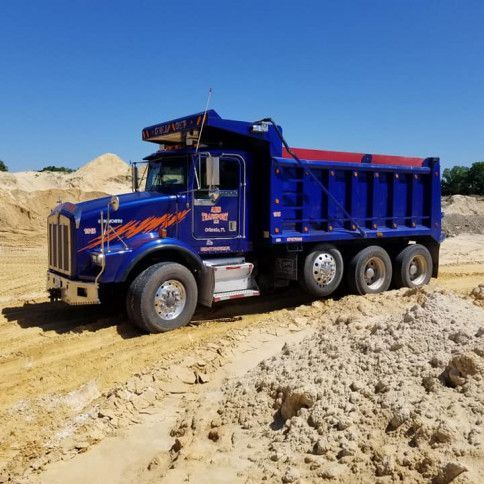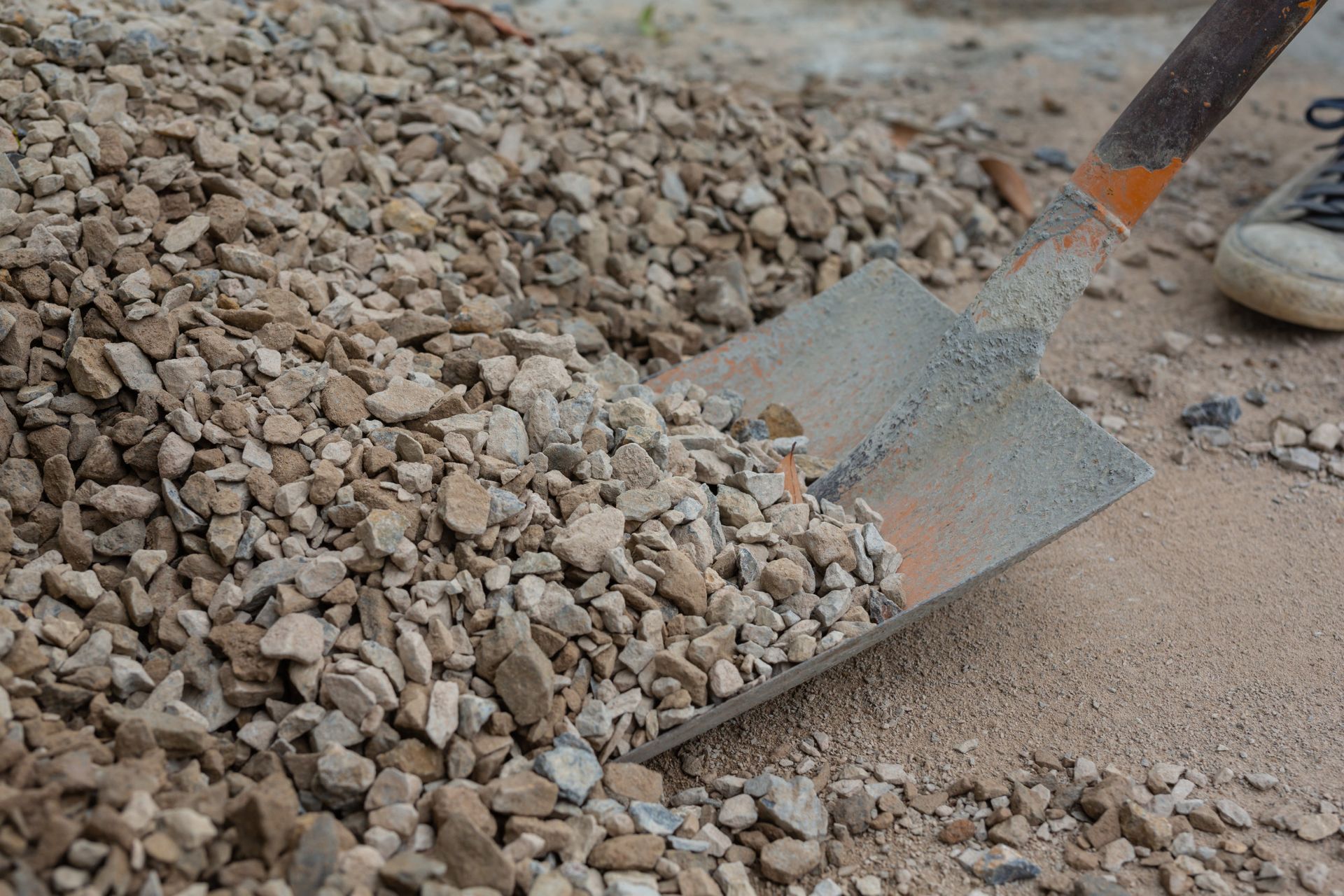Constructing a Foundation with Gravel and Concrete Fines
When embarking on a construction project, one of the most critical steps is laying a strong foundation. The foundation of any structure determines its stability, durability, and overall longevity. In the construction industry, gravel and concrete fines are widely recognized as essential materials for creating a reliable foundation. At ABR Transport LLC, located in Orlando, FL, we specialize in providing high-quality gravel and concrete fines to help you build a solid foundation for your projects. In this blog post, we’ll guide you through the process of constructing a foundation with these materials, highlighting their benefits, the best practices for installation, and how our services can assist you.
Understanding the Role of Gravel in Foundation Construction
Gravel is a crucial component in the construction of foundations due to its excellent drainage properties and ability to distribute loads evenly. It is often used as a base layer to create a stable surface for concrete to be poured on top. The primary functions of gravel in foundation construction include:
- Drainage: Gravel allows water to pass through, preventing moisture from accumulating under the foundation, which could otherwise lead to cracking or settling over time.
- Load Distribution: Gravel helps distribute the weight of the structure evenly across the ground, reducing the risk of uneven settling or shifting.
- Compaction: Gravel can be compacted to create a firm, stable surface, essential for ensuring the longevity of the foundation.
At ABR Transport LLC, we offer a variety of gravel types to meet the specific needs of your project, whether you’re working on a residential, commercial, or industrial site.
The Advantages of Using Concrete Fines in Foundations
Concrete fines, also known as crushed concrete fines, are a byproduct of the concrete recycling process. They offer several benefits when used in foundation construction, including:
- Sustainability: Using concrete fines reduces the need for new materials, making it an environmentally friendly choice. By recycling old concrete, we contribute to reducing landfill waste and conserving natural resources.
- Cost-Effectiveness: Concrete fines are generally more affordable than new concrete, helping you save on material costs without compromising quality.
- Strength and Durability: When combined with gravel, concrete fines create a solid, compact foundation that can withstand significant weight and pressure.
At ABR Transport LLC, we ensure that our concrete fines meet the highest standards of quality, providing you with a reliable material for your foundation projects.
Best Practices for Constructing a Foundation with Gravel and Concrete Fines
Constructing a foundation with gravel and concrete fines requires careful planning and execution to ensure a strong, long-lasting result. Here are some best practices to follow:
- Site Preparation: Begin by clearing the construction site of any debris, vegetation, or loose soil. Ensure the ground is level and stable before laying the foundation materials.
- Layering: Start with a layer of gravel, typically 4 to 6 inches deep, depending on the size and type of structure you’re building. This layer should be evenly spread and compacted to create a stable base.
- Adding Concrete Fines: Once the gravel layer is in place, add a layer of concrete fines on top. This layer should be about 2 to 3 inches thick and should also be evenly spread and compacted.
- Compaction: Proper compaction is key to creating a solid foundation. Use a mechanical compactor to compact the gravel and concrete fines layers, ensuring there are no air pockets or loose areas.
- Moisture Control: Keep the foundation materials slightly moist during the compaction process to help bind the particles together and prevent dust from being blown away.
Following these best practices will help you create a foundation that is strong, durable, and capable of supporting the weight of your structure.
Common Applications of Gravel and Concrete Fines in Foundation Construction
Gravel and concrete fines are versatile materials that can be used in a variety of foundation construction projects. Some common applications include:
Residential Foundations: Gravel and concrete fines are often used in the construction of house foundations, providing a stable base for concrete slabs or footings.
- Driveways and Walkways: These materials are also ideal for constructing driveways and walkways, offering excellent drainage and a solid surface that can withstand heavy traffic.
- Retaining Walls: In the construction of retaining walls, gravel and concrete fines help create a stable foundation that prevents soil erosion and ensures the wall’s stability.
- Patios and Outdoor Spaces: For patios, decks, and other outdoor spaces, using gravel and concrete fines as a foundation material ensures a level surface that can support furniture, equipment, and foot traffic.
No matter the size or scope of your project, ABR Transport LLC has the materials you need to create a strong foundation.
Why Choose ABR Transport LLC for Your Foundation Material Needs?
At ABR Transport LLC, we are committed to providing our customers with the highest quality materials and exceptional service. Here’s why you should choose us for your foundation material needs:
- Expertise: With years of experience in the construction materials industry, we understand the unique requirements of different projects and can recommend the best materials for your specific needs.
- Quality Assurance: We take pride in offering only the finest gravel and concrete fines, ensuring that every batch meets our stringent quality standards.
- Timely Delivery: We know that time is of the essence in construction projects, which is why we offer prompt and reliable delivery services to keep your project on track.
- Customer Support: Our knowledgeable team is always available to answer your questions, provide guidance, and assist you in selecting the right materials for your foundation.
- Competitive Pricing: We offer competitive pricing on all our materials, helping you stay within budget without compromising on quality.
Whether you’re a contractor, builder, or DIY enthusiast, ABR Transport LLC is your trusted partner for all your foundation material needs.
Contact ABR Transport LLC Today for High-Quality Gravel and Concrete Fines
If you’re planning a construction project in Orlando, FL, and need reliable, high-quality materials for your foundation, look no further than
ABR Transport LLC. Our team is ready to assist you in selecting the right
gravel,
concrete fines, and
dirt and sand for your project and ensuring that your foundation is built to last. Contact us today at
(407) 375-0012 to learn more about our products and services, or to place an order. Let us help you build a strong foundation for your next project!
FAQs
What type of gravel is best for foundation construction?
The best type of gravel for foundation construction is typically ¾-inch crushed stone or crushed gravel. This size provides excellent drainage and compacts well to create a stable base for concrete.
How thick should the gravel layer be for a foundation?
The gravel layer should generally be 4 to 6 inches thick, depending on the size and type of structure being built. This thickness provides adequate drainage and load distribution.
Can concrete fines be used as a standalone foundation material?
Concrete fines are typically used in conjunction with gravel rather than as a standalone material. While they provide strength and durability, combining them with gravel ensures proper drainage and load distribution.
How do I know if my foundation materials are properly compacted?
Properly compacted foundation materials should be firm and stable, with no visible air pockets or loose areas. You can test compaction by walking on the surface—if it feels solid and doesn’t shift underfoot, it’s likely compacted correctly.
How can I prevent water from affecting my foundation?
To prevent water from affecting your foundation, ensure proper drainage by using gravel as a base layer. Additionally, consider installing a drainage system around the foundation and waterproofing the concrete to protect against moisture infiltration.
